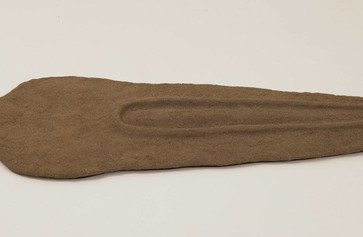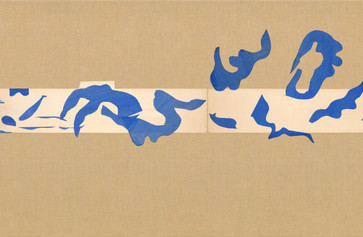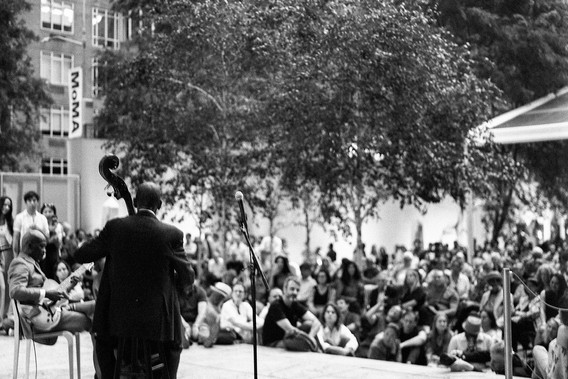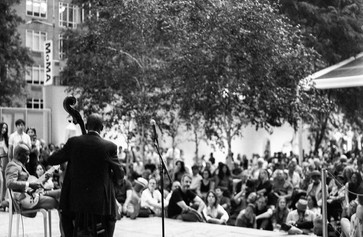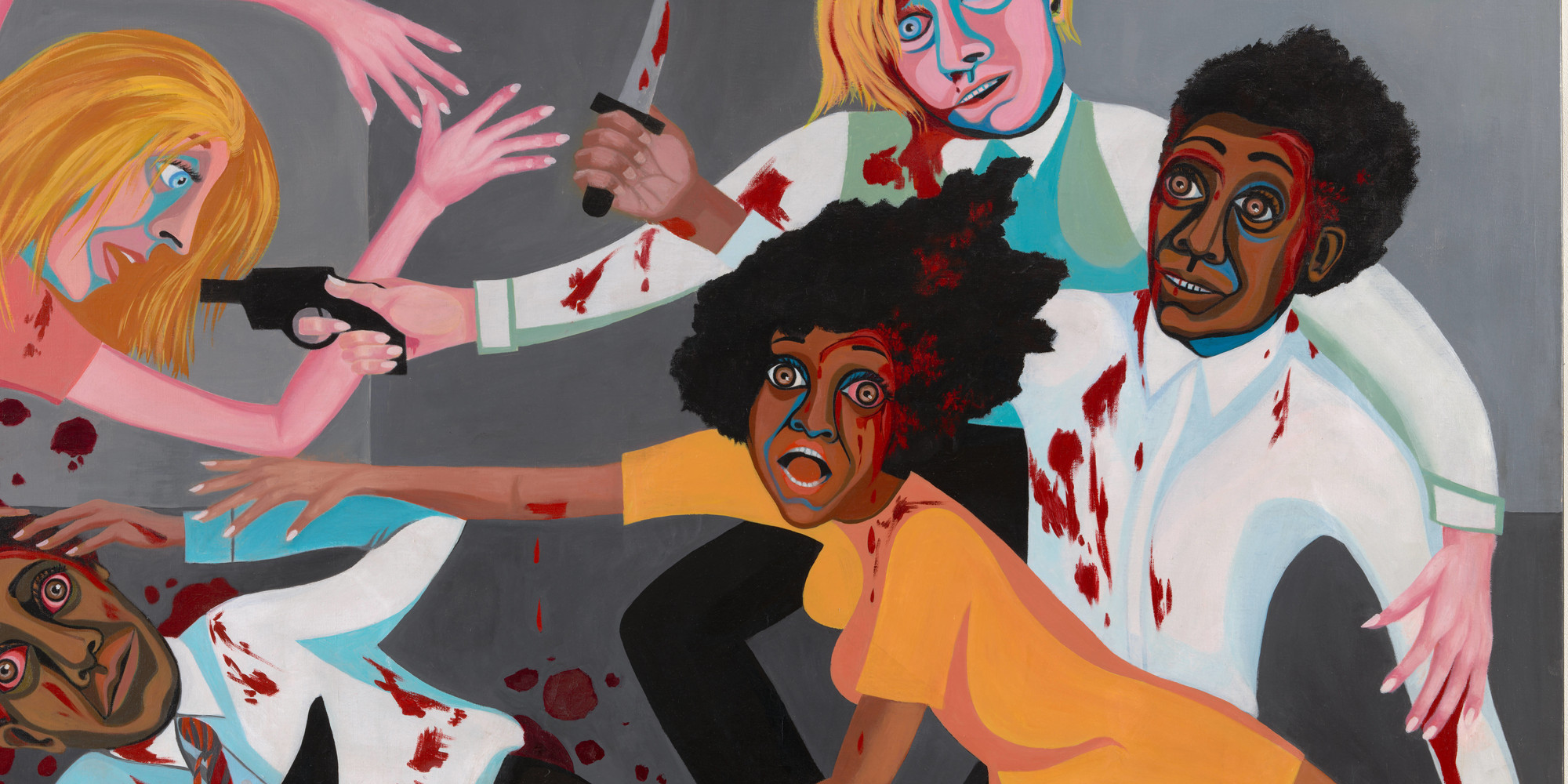
Elegy for Us
Poet Crystal Williams finds truth in Faith Ringgold’s American People Series #20: Die.
Crystal Williams
Jan 7, 2020
For this Poetry Project, we asked Robin Coste Lewis, the poet laureate of Los Angeles, to invite a group of poets to contribute an original poem written in response to a work of art in MoMA’s collection. In addition to hearing these poems read by their authors and reading about their creation on Magazine, you can listen to them in front of the chosen artwork as a part of our new Poetry Audio Tour of the collection galleries.
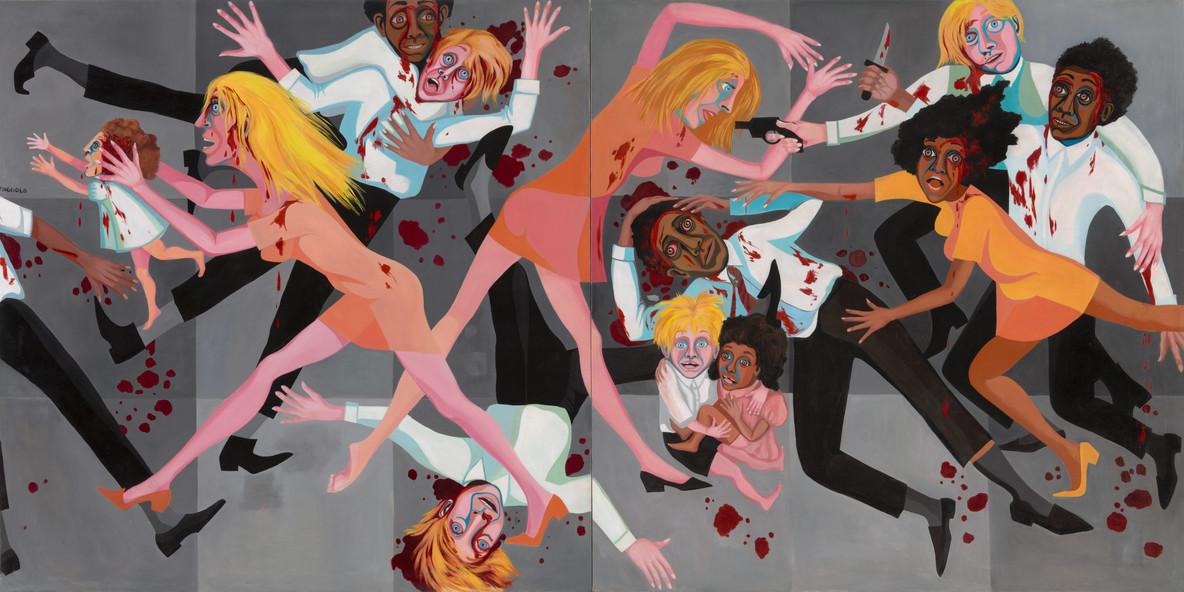
Faith Ringgold. American People Series #20: Die. 1967
Elegy for Us
“You wanna fly, you got to give up the shit that weighs you down.” –Toni Morrison, Song of Solomon
The orca carried her dead calf on her back for seventeen days, the weight of the body slowing her, as all dying weight slows us, the dead calf threatening her life as might a dying dream, as might an unforgiven betrayal. She was a constellation of grief, Tahlequah the orca mother, hauling & prodding & willing the holy baby body onward. Scientists dismissed her actions as meaningless, anomalous for orcas, anomalous for apes, anomalous for sloths, sparrows, for snow hare & bear. Which is to say they reasoned & huffed: What do animals know of amplitude & love? Of reliance & dependence? What can an orca know of grief?
***
It is said that the largest living organism on earth is a grove of male trees in North America. An ancient among us, a being more than 80,000 years old, which means it harbors infinite hearts, if we harbor what we have held & what we have known. Trillions of dreams. Millions of souls & flecks of withered ash. These quaking aspens standing as they do, tall, thin, bright & burgeoning like lean gods at attention, each trunk an undistinguished tuber drawing sustenance from a communal core. Our failure is to believe them individuals. Scientists fear, although cannot reason why, that this long life is coming to a slow, soundless end. & which animals will mourn it?
***
Which is to say: we are not omnipotent. We are not supreme. We are no more than different from the other beings, though our violences are more profound. Our intelligences are not better than an ant’s, not even more powerful if by power we mean enduring. Augmented by thumbs & metal & differently comprised, our connections constrained by—, confined to—, defined by—, our huddled, fearful bodies, the strange, hard languages bound up between us. Drawing sustenance from a communal core, a once shared desire to understand, we are tangled, gnarled, & perishing.
Which is to say: if sadism is our primary distinction, we have cause only to be humbled & heed.
***
A friend once told me that leaves do not fall from trees. Rather, trees wisely eject leaves when they are done with that particular iteration of that particular life. Which, is to say, regardless of whether it is true or not: all beings do have agency. Which is to say: Decide.
***
More than anything, I am afraid of—, I am ashamed of—. This numbness. I mourn. I did not do enough to right our injustices. I did not treat the next body as my own, understand the next body as my own, which is to say: I did not love enough. More than anything I hope my ancestors with their heavy, worn backs forgive me when I stand before them naked. I am not even a reasonable approximation of my mother & father’s goodnesses & lessons & hope when I again see them they do not avert their eyes in shame. Which is to say: If we are each just tubers, I am an unforgiven betrayal. &, if we are the sum of our actions, I am a crystalline dream, dying.
Among the many amazements of trees is that no matter where they are on the planet, no matter what language they speak, they again & again & again propose birth, bud, leaf, light. & so then, to you, standing before me as if in a mirror, like a lean god, like all of the gods from all of the lands in all of the hearts, bright & burgeoning as we can be, to you I start with this apology.
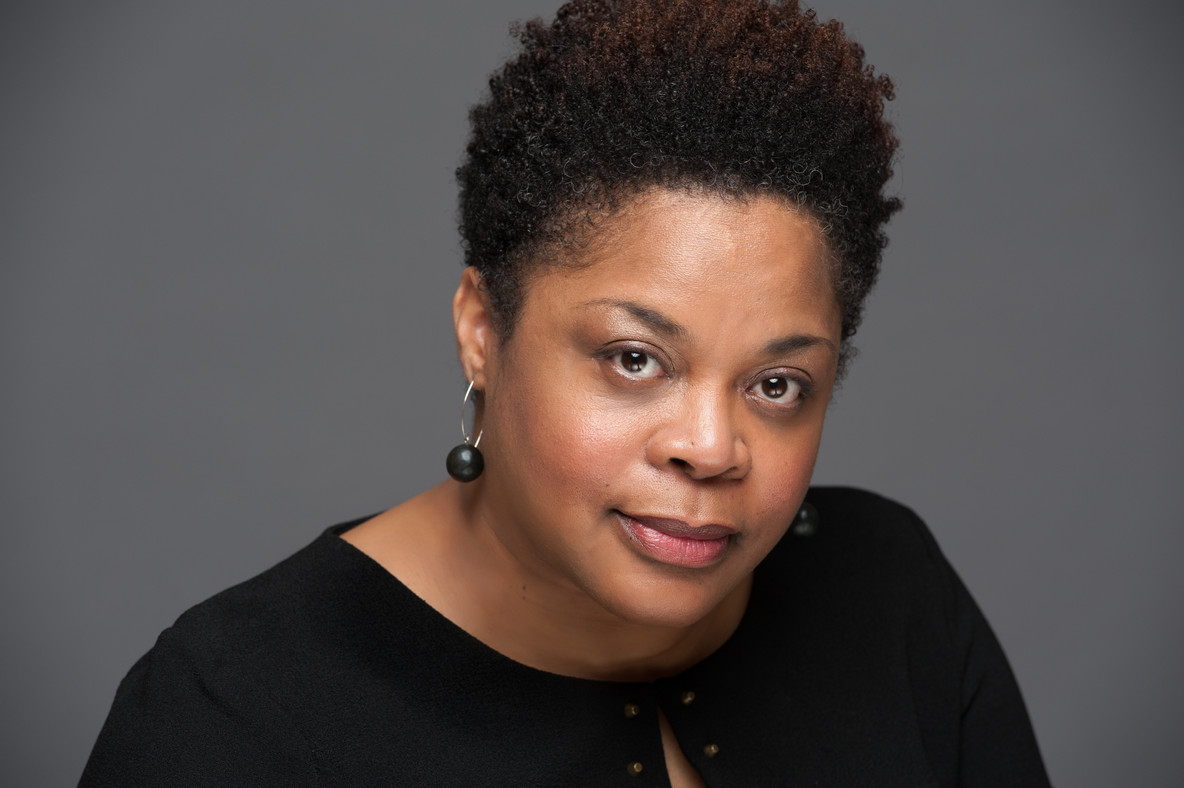
Why did you choose this work of art?
I chose American People #20 because, the first time I saw it, it flattened me with its truthfulness and honesty and also for how much love was needed to endure its making. It stopped me in my tracks. I thought the least I could do is try to tell Faith that. I wanted to write a poem about this because of how human it made me feel. In particular, how it made me feel as an American in the 20th and 21st centuries.
What was your approach to writing this poem?
I didn’t need to describe the piece. I wanted to talk about what the piece made me feel, which was a powerful sense of shame, mourning, and a level of disquiet. I wanted to write something that was as truthful and honest as I could be about my own failures and hope that in writing it it might offer other people a way of thinking about our collective failures to ourselves and one another. I wanted to write something that would invite people into that kind of thinking without turning them away.
Crystal Williams, a poet and essayist, has published four collections of poems, most recently Detroit as Barn, finalist for the National Poetry Series, the Cleveland State Open Book Prize, and the Maine Book Award. Since 2017, Williams has worked as the associate provost for diversity and inclusion at Boston University.
